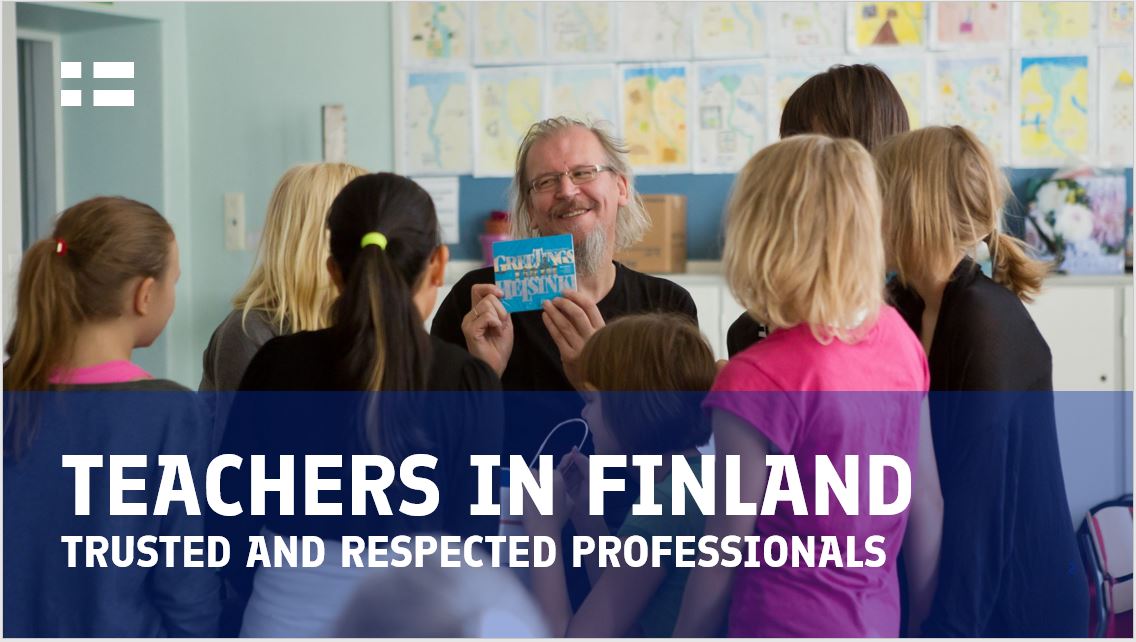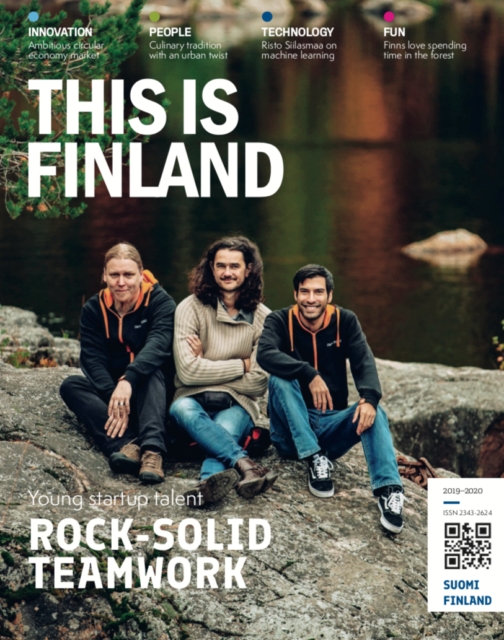Teachers in Finland are highly educated professionals and important cornerstones for a society based on equal opportunities and a lifelong joy of learning. Finnish teacher education focuses on independent problem-solving and is constantly developed to keep up with the rapid changes in technology and society.
The happiest country in the world is also said to have the best teachers. In Finland, we place great value on education and understand that a good teacher is the very core of successful learning. Here, teachers are trusted professionals and innovators, encouraged and empowered to explore new approaches.
Instead of a top-down -model, Finnish schools and educators get a significant amount of autonomy – and responsibility – to make decisions at the local level. Because there are no mandatory national standardized tests for pupils in basic education, teachers themselves are responsible for the assessment of their respective subjects.
Finnish pupils spend less time in a classroom than most of their OECD counterparts, and the time used on homework is also limited. The average class size in Finnish schools is less than 20 students, and a student-centered approach lies at the heart of all learning. We place great trust in our teachers as well as our school principals, who have an important role as pedagogical directors.
The open atmosphere in Finnish schools supports independence, creativity, and innovation, for both teachers and students. We try to ensure a balance between theoretical, arts, crafts, and science subjects. In recent years, we have introduced phenomenon-based learning, and are increasing the use of other progressive teaching methods as well. Technology is used as one tool to support learning.
Playing, gameful learning and physical activities promote the joy of learning, and an active role in learning increases motivation and capabilities for creative thinking.
teacher education
Teacher education is a popular field of study in Finland, with universities being able to select among the most well-suited and motivated applicants for their programs. Starting from basic education, Finnish teachers must hold a master’s degree in education, or in their specific field. Entrance tests assess aspects such as academic studying skills and aptitude for the profession. Finnish teacher education is research-based, and aims to equip the students with all relevant skills for continued professional development.
However, teacher education does not only consist of academic studies, but also involves pedagogical studies and guided teaching practice, which is implemented in the universities’ own practice schools. Guided teaching practice involves teaching, guidance discussions, and a closer look at tasks and responsibilities related to the everyday life of schools. The objective is to produce teachers who are capable of independent problem solving, and who are able to develop themselves and their community, both independently, and in cooperation with their colleagues.
The content of teacher education develops constantly. Things to focus on at the moment are for example how to guide students who require a greater level of support, the development of learning environments, the utilization of digital technologies, issues related to a multicultural society, cooperation between school and home, and with the world of work. The National Teacher Education Forum is also a way for teachers to be active. The forum represents a broad spectrum of relevant stakeholders and focuses on developing research-based teacher education.
But learning does not end with graduation. Lifelong learning is an important part of the Finnish education system and a natural part of working life. Every Finnish teacher has access to online learning, and there are tutor teachers that support their colleagues. They are responsible for assisting other teachers in the meaningful educational use of technology in teaching and learning.
Finnish happiness stems from creativity, wellbeing, and equal opportunities for all. Our teachers are superheroes who make it all possible.
Highlights
- Finnish teachers must hold a master’s degree in education, or in their specific field.
- Teacher education does not only consist of academic studies but also involves pedagogical studies and guided teaching practice.
- The content of teacher education develops constantly. The objective is to produce teachers who are capable of independent problem solving.
- Teachers are encouraged to explore new approaches in their work.
- There are no mandatory national standardized tests for pupils in basic education. Teachers themselves are responsible for the assessment of their respective subjects.
- Finnish pupils spend less time in a classroom than most of their OECD counterparts.
- Finnish schools support independence, creativity, and innovation. Technology is used as one tool to support learning.
LEARN MORE ABOUT FINNISH TEACHERS









